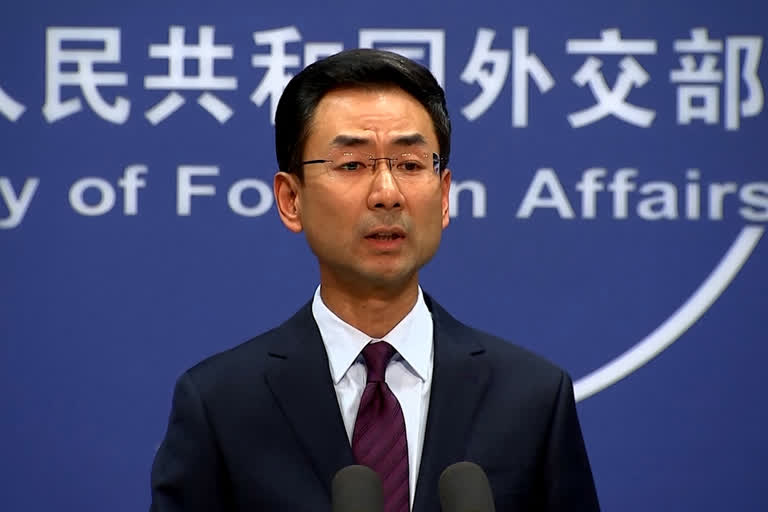Beijing: China on Thursday objected to the bifurcation of Jammu and Kashmir into two union territories as 'unlawful and void', saying India's decision to 'include' some of China's territory into its administrative jurisdiction 'challenged' Beijing's sovereignty.
Jammu and Kashmir was bifurcated on Thursday into two union territories, Jammu and Kashmir and Ladakh in accordance with the Indian government's announcement on August 5 revoking the state's special status under Article 370.
China had earlier objected to the Indian government's order of the revocation of Article 370 and the formation of Ladakh as Union Territory, saying that some of the areas involved Chinese territory.
"The Indian government officially announced the establishment of so-called Jammu and Kashmir and Ladakh Union Territories which included some of China's territory into its administrative jurisdiction," China's foreign ministry's spokesman Geng Shuang told the media on Thursday.
"China deplores and firmly opposes that India unilaterally changed its domestic laws and administrative division challenging China's sovereignty," he said.
"This is unlawful and void and this is not effective in any way and will not change the fact that the area is under Chinese actual control," he added.
"China urges the Indian side to earnestly respect Chinese territorial sovereignty, abide by our treaties and uphold peace and tranquillity in the border areas and create favourable conditions for the proper settlement of boundary question," he said.
After the revocation of Article 370, External Affairs Minister S Jaishankar, who visited China in August, informed his Chinese counterpart Wang Yi that the revocation of the special status of Jammu and Kashmir is an internal matter and the sole prerogative of India and it has no implication for either the external boundaries of India or the Line of Actual Control (LAC).
On the Kashmir issue, Geng said, "China's position on the Kashmir issue is consistent and clear, this is a dispute left from history and it should be properly and peacefully resolved based on the UN charter, the relevant UNSC resolutions and other bilateral treaties and relevant sides should resolve the dispute through dialogue and consultations and uphold regional peace and stability."
Since the revocation of Article 370, China, which in the past stated that Kashmir issue should be resolved between India and Pakistan, started referring to the UN Charter and UNSC resolutions for a settlement.
Beijing has backed its all-weather ally, Islamabad's attempts to call for an informal meeting of the UN Security Council. However, the informal UNSC meeting, in a rebuff to Beijing and Islamabad, ended without passing a resolution or statement.
A joint statement, issued at the end of Pakistani Prime Minister Imran Khan's visit to Beijing on October 9 said, "The Chinese side responded that it was paying close attention to the current situation in Jammu and Kashmir and reiterated that the Kashmir issue is a dispute left from history, and should be properly and peacefully resolved based on the UN Charter, relevant UN Security Council resolutions and bilateral agreements".
Khan's visit took place ahead of Chinese President Xi Jinping's visit to Chennai on October 11-12, where he held his second informal summit with Prime Minister Narendra Modi.
In his visit to Beijing in August, Jaishankar defended the government's decision during talks with his Chinese counterpart Wang and said that the reason for the change is for better governance, social and economic development in Jammu and Kashmir.
"It has no implications for anybody else. The issue related to changes is a temporary provision of the Constitution of India and was the sole prerogative of the country," Jaishankar had said.
"The legislative measures were aimed at promoting better governance and socio-economic development. There was no implication for either the external boundaries of India or the Line of Actual Control (LAC) with China. India was not raising any additional territorial claims," Jaishankar said.
"The Chinese concerns in this regard were therefore misplaced," the minister had said, adding that as far as the India-China boundary question was concerned the two sides had agreed to a fair, reasonable and mutually acceptable settlement on the basis of the 2005 Political Parameters and Guiding Principles.
The India-China LAC covers 3,488 km and the Special Representatives of both the countries have held 21 rounds of talks to resolve the boundary dispute.
Read also: Article 370 led to separatism, terrorism in J-K: PM



